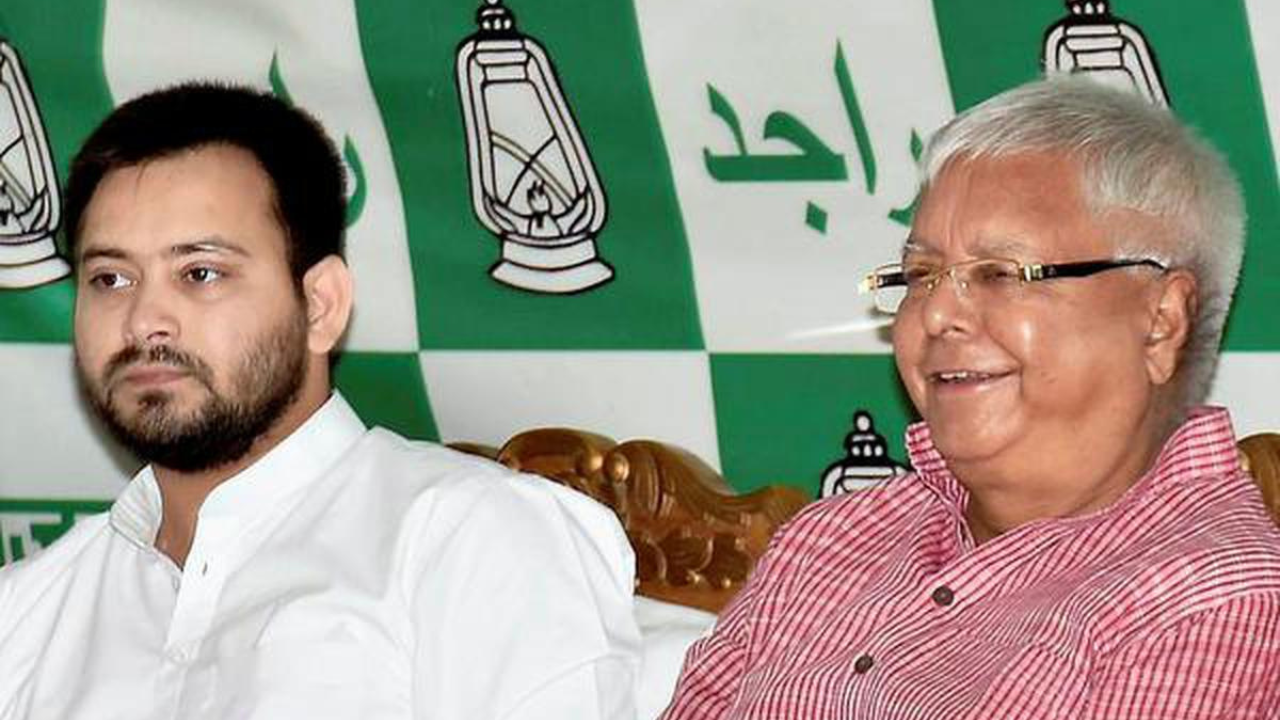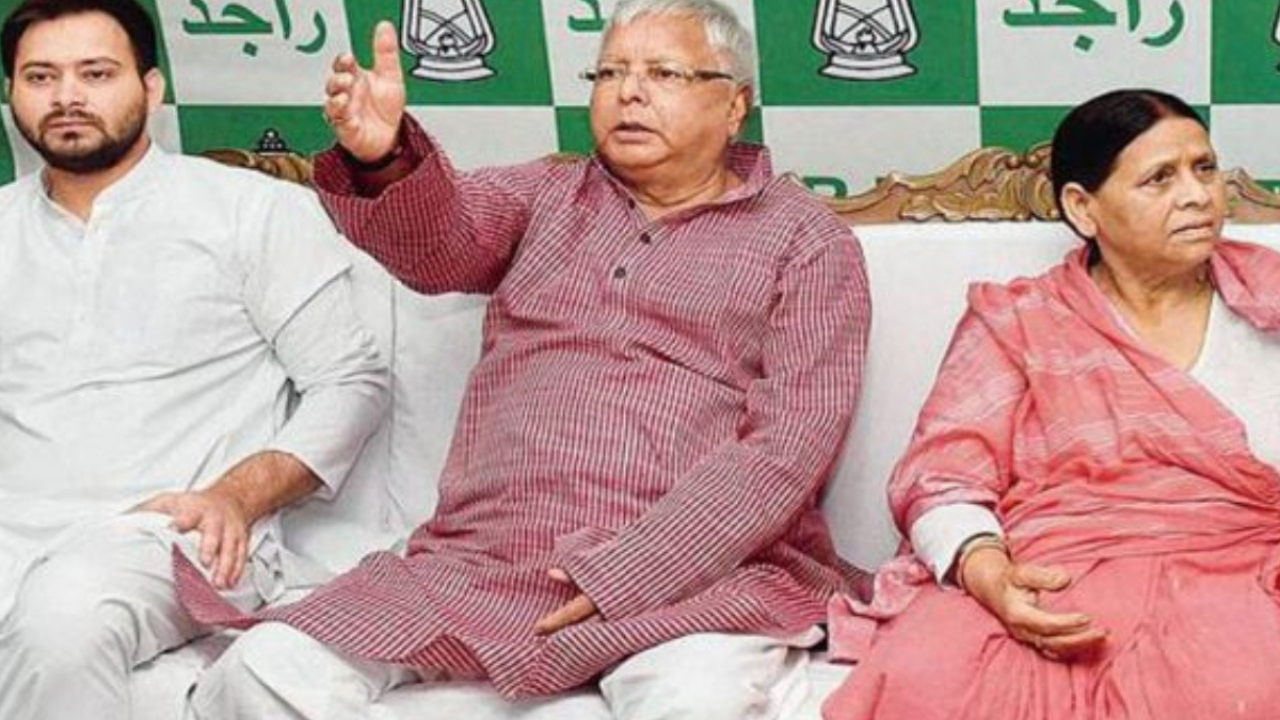 English
English

Hours after a Delhi court framed cheating and conspiracy charges against RJD chief Lalu Prasad Yadav and his family in the long-pending IRCTC hotel case, Tejashwi Yadav vowed to continue the fight — but how will this shape Bihar’s political battlefield?

Charges were filed under Sections 420 and 120B.
New Delhi: As the Rouse Avenue Court in Delhi formally framed charges under Sections 420 (cheating) and 120B (criminal conspiracy) against Lalu Prasad Yadav, Rabri Devi, and Tejashwi Yadav in the IRCTC hotel scam, the RJD scion responded with characteristic defiance.
“Hum ladte rahe hain aur ladte rahenge — we have fought and will continue to fight,” said Tejashwi Yadav, moments after the verdict, alleging that the charges were part of a long-standing political campaign to weaken the Rashtriya Janata Dal ahead of the Bihar elections.
The framing of charges marks the beginning of a full-fledged trial in one of the most closely watched corruption cases involving a former Railway Minister and his family.
The IRCTC hotel scam, dating back to Lalu Prasad’s tenure as Union Railway Minister (2004–2009), centers on alleged irregularities in the leasing of BNR Hotels in Ranchi and Puri to a private firm.
According to the CBI chargesheet, between 2004 and 2014, railway-run hotels were first transferred to IRCTC and later handed over to Sujata Hotels, a Patna-based company, under a rigged tender process.
Lalu family hit by corruption charges ahead of the Bihar elections under these sections
Investigators allege the tender was tweaked to benefit Sujata Hotels, owned by Vijay and Vinay Kochhar. Senior IRCTC officials, VK Asthana and RK Goyal, were also named in the chargesheet. Two corporate entities — Delight Marketing Company (now Lara Projects) and Sujata Hotels — have been listed as accused for receiving undue financial advantages.
The CBI contends that this manipulation resulted in illegal benefits for private players and financial loss to the government.
The IRCTC hotel case traces its roots to 2004–2005, when contracts for budget hotels in Ranchi and Puri were awarded under Lalu Prasad’s tenure as Railway Minister. A few years later, between 2006 and 2007, the CBI initiated a preliminary inquiry into suspected irregularities, gathering tender documents and correspondence. Formal FIRs were filed around 2008–2010, naming Lalu, his family members, and several railway officials under provisions of the IPC and the Prevention of Corruption Act.
What followed was a long and winding legal battle marked by procedural delays, health-related adjournments, and appeals that stretched through the 2010s. The case regained momentum between 2019 and 2025, as evidence review and final arguments were completed. Finally, on October 13, 2025, the Rouse Avenue Court in Delhi framed charges under Sections 420 and 120B, officially setting the stage for the trial to begin after nearly two decades of investigation and litigation.

Court trial will examine tender records, testimonies, and financial discrepancies.
The timing of the verdict, coming months before the 2025 Bihar Assembly elections, has raised political temperatures.
While the CBI maintains the case is purely procedural, RJD leaders view it as another attempt to corner the party before polls.
Tejashwi’s quick, emotional response — calling it a fight for justice and dignity — has already galvanized party cadres. Political analysts say the RJD may use the case to project itself as a victim of selective targeting, a strategy that has worked for Lalu in the past.
The BJP-led opposition, however, is expected to sharpen its “anti-corruption” narrative, framing the case as a reminder of the RJD’s tainted governance record.
The trial will now examine official contracts, tender records, and testimonies from key railway and IRCTC officials. The defense is likely to argue that all procedures were transparent and legally sound, while the prosecution seeks to prove deliberate favoritism and misuse of power.
For the Lalu family, the next few months will determine not just a legal outcome but the political tone of Bihar’s upcoming election season — one already defined by emotion, legacy, and defiance.
No related posts found.